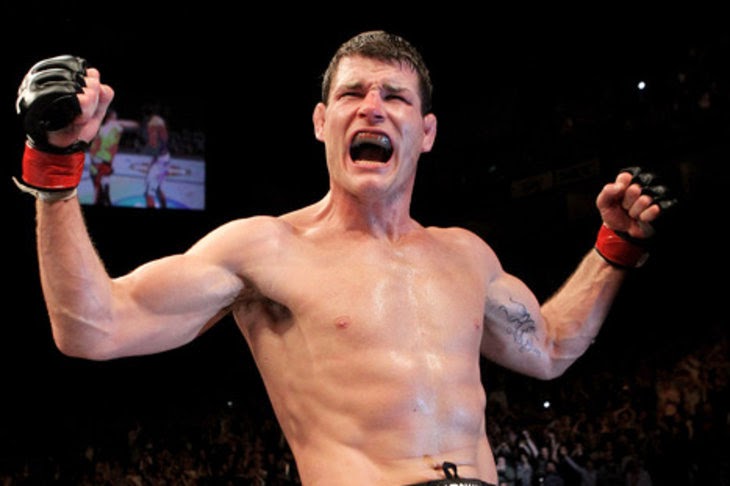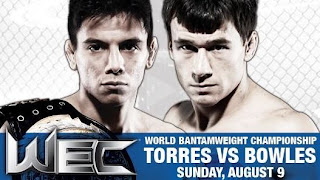The Spike TV franchise has served its purpose, and as an MMA fan, I’m letting go. Feel free to do so too.
I’ve never been much of a reality TV fan. I’ve tended to favor sports for my reality-based entertainment; it has all the drama I need. Having said that, I liked The Ultimate Fighter, because, in the words of Dana White, “nobody gets voted off; they get beaten off.” (Pause.) Homoerotic quotes aside, I saw my share of sniping, scheming, and back-biting while watching shows like The Real World or Road Rules, or clips from shows like Survivor and Big Brother. “I’m not here to make friends,” was a common refrain, yet if the confrontations and competitions turned violent, the producers jumped in to defuse the situation. The testosterone-fueled viewer that I was wanted to see things pop off, and TUF offered me a chance to see professional fighters settle their beefs in the Octagon.
Furthermore, I was a new fan of mixed martial arts, dipping my toe into seriously following a sport with limited exposure, whose “stars” were cult figures and borderline outlaws, given the lack of regulation (and even legality) in many jurisdictions. It was a sport that wanted $40 from me every month to get access to the UFC’s brand of world-class fighting, but without an opportunity to sample the fights for free, I wasn’t so sure.
That was the genius of Zuffa’s arrangement with Spike TV. In an age where the average sports fan wasn’t on the internet all the time, and when traditional sports outlets like ESPN wanted nothing to do with covering the UFC, fans were given UFC Unleashed to catch up on classic fights, Ultimate Fight Nights to see live fights featuring up and comers, and the crown jewel, the reality show The Ultimate Fighter, which introduced us to the next generation of UFC superstars. Griffin, Evans, Koscheck, Leben, Jardine, Sanchez, Florian, Bisping. These names we take for granted now were introduced to us every week on Spike. The lightweight division was rebuilt on the backs of the Ultimate Fighter 5, which reintroduced fans to BJ Penn and Jens Pulver. Nearly every top draw in the UFC has been featured as either a coach or competitor on The Ultimate Fighter; its contribution to the growth of the UFC cannot be denied.
But I praise TUF in order to bury it. The era which made TUF a necessity has long since passed. MMA is legal and regulated in nearly every jurisdiction in the US and Canada, with only New York remaining as a high-profile destination. ESPN has a weekly show that covers MMA, and covers the sport with the same enthusiasm that it covers other sports. MMA has aired in primetime on network television. Nowadays, a week is noteworthy when it does not feature a televised MMA card, rather than when it does.
This doesn’t even take into account the extent to which the UFC brand has made itself ubiquitous. In addition to its PPV offerings, there are fights on Spike TV, fights on Versus, fights on ION, and even fights on Facebook. The organization has found new and interesting ways to satisfy fans’ appetite for UFC action. The Ultimate Fighter is mere icing on the rich and decadent cake of MMA content.
There was once a time when The Ultimate Fighter was filled with world class prospects, most of which were good enough to be valuable additions to the UFC roster before even appearing on the program. The talent level of each season of The Ultimate Fighter has gotten progressively worse, in part because these prospects aren’t sitting around waiting for their big break via TUF. They are signing with second-tier shows like Bellator, DREAM, Sengoku, and Strikeforce, and entering the UFC directly, making their names on HDNet, MTV, and Showtime, and not subjecting themselves to the grueling schedule of reality TV, nor the desperate payscale of a reality TV contestant. In another era, Jon Jones, Phil Davis, Muhammed Lawal, and Gegard Mousasi would be spending weeks in the TUF House, getting drunk, and competing for the vaunted “six figure contract.” Now those guys are being thrown into the fire, and putting themselves on the MMA map, without feeling the need to be turned into Spike TV reality stars. And with more and more cards being put on by Zuffa, this situation will continue. Prospects are now chosen for TUF based on their ability to be compelling characters on TV every week, not based on their ability to be future champions and contenders. The future champions and contenders will be developed elsewhere.
If you consider yourself a hardcore MMA fan, you have more than enough events competing for your attention, more than enough fighters stepping from obscurity into relevancy. If you’re looking to see stars born, investing an hour a week in watching the tired antics of flawed fighters in the TUF house doesn’t seem like an efficient use of your resources.
Now some might argue that TUF is still a highly effective way to hype the battles that happen between each season’s coaches. And indeed, the most successful seasons, ratings-wise, have been those seasons where the two coaches were feuding. However, in recent years, Zuffa has begun to utilize a technique of hyping fights that is influenced by HBO’s extremely successful “24/7” series. UFC Primetime is much more documentary-oriented, and because it is taped nearly in real-time, it doesn’t subject a division to potential stagnation, and the fighters to long layoffs, like a TUF taping schedule does. Admittedly, it isn’t 12 hourlong episodes, and each episode is more expensive to produce than an episode of TUF, but it has proven to be a better promotional vehicle for a main event than TUF has.
The recent ratings failures of TUF have highlighted the deficiencies of the format. The talent of the current season is not up to par. The coaches have limited “heat” between them. And 14 seasons in, there’s a shadow of “been there, done that” cast over the entire enterprise. Television shows outlive their appeal in a way that sports rarely do, and if the UFC and its fans put too much stock in a television series as a gauge of the overall strength of the organization, then they underestimate what this sport can be. I understand that because of contracts, TUF isn’t going anywhere soon, but if you’re an MMA fan, you shouldn’t root for Zuffa putting energy towards retooling the series; it has done its job. In fact, you should be rooting for evolution and innovation, the UFC finding the next big way to get its stars into the consciousness of the mainstream sports fan. Instead of feeling obligated to watch the program based on what it meant to the sport in the past, look ahead to the programs that will mean something to the sport in the future. Instead of lamenting the lack of stars built through TUF in recent memory, be proud of the stars that were built based on their performances in the Octagon, or the compelling natures of their personas. Cruz, Aldo, Edgar, St.-Pierre, Silva, Jones, and Velasquez didn’t destroy any houses or make “special sauce” sushi to become stars in this sport; they just put on gutsy championship performances. The future superstars of the sport won’t be found by casting agents, they’ll be making an impact on MMA fans based on their own merits. And the fans who are interested in seeing who those next superstars will be surely won’t be watching TUF.





I'll continue to be a fan of.. and support this show…
People who don't like this show yet say they are fans of UFC/MMA in general, baffle me!
This show gives guys the opportunity to get discovered – to give them a face/name to the public… makes some prelim cards more relivant than normal…
So you can surely quit watching this show… but in a few years when you are blown away/excited by an up and comer you just saw score a KO on a fight night card – the true fans will say… yea, he was on the TUF 12 season….
I'll continue to be a fan of.. and support this show…
People who don't like this show yet say they are fans of UFC/MMA in general, baffle me!
This show gives guys the opportunity to get discovered – to give them a face/name to the public… makes some prelim cards more relivant than normal…
So you can surely quit watching this show… but in a few years when you are blown away/excited by an up and comer you just saw score a KO on a fight night card – the true fans will say… yea, he was on the TUF 12 season….